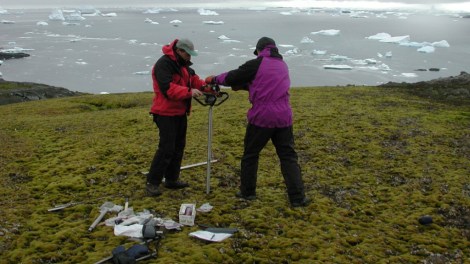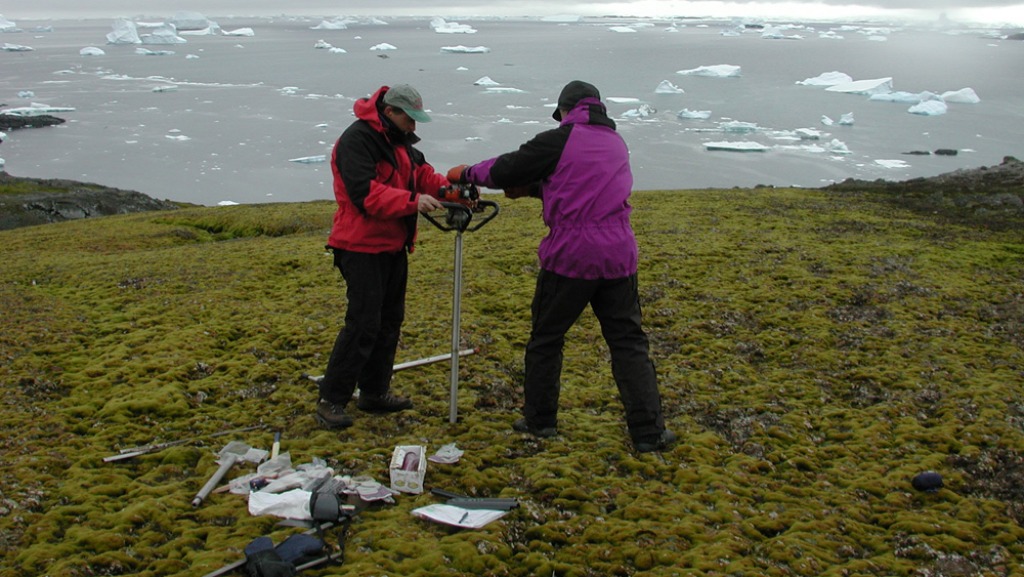
Peter BoelenSampling frozen moss in Antarctica.
The germs of microscopic jungles lay frozen at the poles, ready to burst into life as the ice and snow melt around them.
Deep moss banks growing on rocks and at the bottoms of lakes are defining botanical features in many cold and frigid environments. And as the poles melt, moss populations are quickly greening newly exposed earth.
But how could moss reach these remote locations? A new discovery highlights the fact that it doesn’t need to. It’s already there, frozen after previous warm spells and ready to resume the humble act of living.
Scientists bored a little more than a yard into ice beneath a moss bank on Antarctica’s Signy Island. They unearthed moss shoots that had been frozen in permafrost during the past 1,500 years. Despite their centuries of dormancy, the Chorisodontium aciphyllum samples were coaxed back to life in a British laboratory in a matter of weeks.
Moss is famously hardy, capable of withstanding frost and drought. But scientists had never revived frozen moss after more than 20 years of dormancy. The new research shows that the “potential clearly exists for much longer survival” than 1,500 years, the scientists wrote in a paper published Monday in Current Biology. That potential doesn’t just exist at the poles — it could also affect mountain landscapes.
“There is a potential influence here on what you see after deglaciation,” British Antarctic Survey professor Peter Convey, one of the authors of the study, told Grist.
“There are organisms already there that could trigger and contribute to the immediate development of communities, or biodiversity, in the deglaciated area — rather than having to wait for the more stochastic arrival from a distance of colonizing spores. This is particularly relevant to the Antarctic, which is isolated by many thousands of kilometers of sea,” Convey said.




